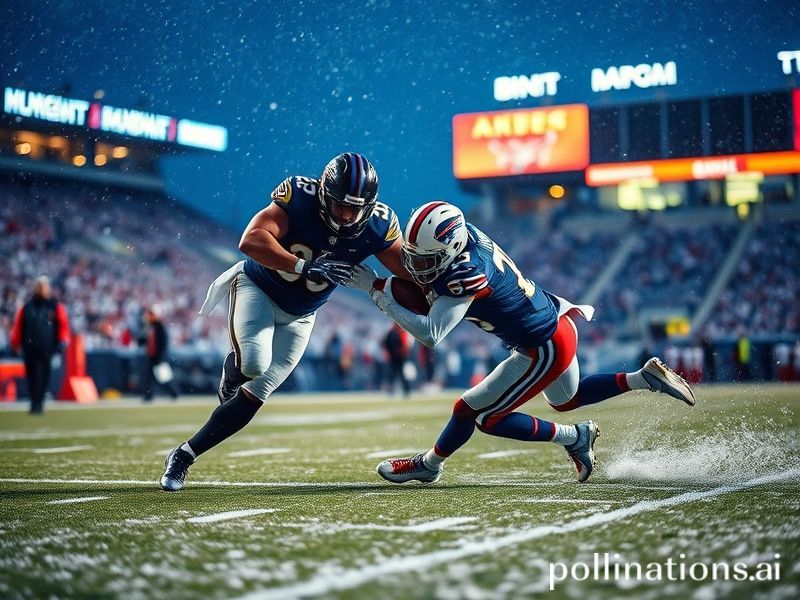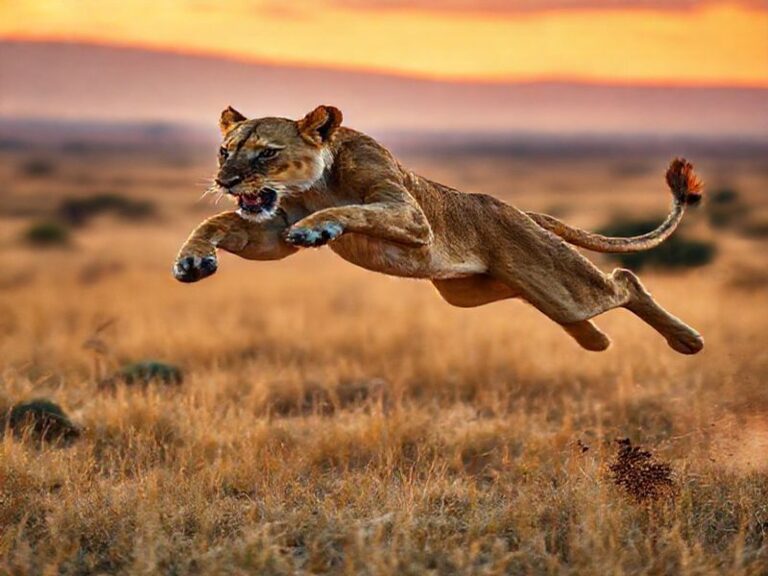Global Gladiators: How Bills-Ravens Became the World’s Most Watched Proxy War
The Bills-Ravens Cold War: How a Mid-Atlantic Playoff Spat Became the World’s Most Watched Proxy Skirmish
By Matteo “Weather Permitting” Dravos, International Correspondent, Dave’s Locker
BALTIMORE—In the end, it wasn’t nuclear brinkmanship or a trade embargo that brought Beijing’s midnight-shift baristas, Lagos Uber drivers, and Reykjavik insomniacs together in group chat. It was a football game whose combined broadcast rights are worth more than the GDP of 30 UN member states. When the Buffalo Bills met the Baltimore Ravens last January, the planet tuned in for what the NFL’s marketing department dubbed “the AFC Divisional Playoff” and what the rest of us recognized as the latest installment of America’s most reliable soft-power export: televised tribal hysteria with a side of wing sauce.
From a purely terrestrial standpoint, the stakes were modest. One team would advance to the conference final; the other would fly home to nurse bruised egos and ligaments. Yet the global ripple effects were immediate. Sports-betting syndicates in Manila fluttered like startled pigeons at the line movement caused by a snow squall. Swiss commodity traders, already jittery over Red Sea shipping lanes, tried—unsuccessfully—to hedge against the emotional volatility of Josh Allen’s right shoulder. And in a windowless room somewhere beneath the Ural Mountains, Russian state media editors debated whether to splice the game’s drone-camera shots into their next “decaying West” montage or simply let Tucker Carlson do the talking for them.
Viewers abroad tend to process American football the way they process American democracy: equal parts awe and bewilderment, garnished with schadenfreude. The Bills-Ravens clash delivered all three in high definition. On one sideline, Buffalo’s frostbitten faithful—decked in enough battery-heated outerwear to jump-start a Tesla—belted out “Shout” with the desperation of people who know Lake Erie will eventually reclaim their city. Opposite them, Ravens fans in purple camo howled for Lamar Jackson, a quarterback whose elusiveness makes EU border guards salivate. Between them stretched a field of synthetic turf and a metaphor too obvious to ignore: two fortress cultures, each convinced the other is one drive away from existential collapse.
The international broadcast feed, bless its heart, tried to educate. A Japanese commentator compared the blitz to a well-timed Tokyo subway push. A French pundit likened the red-zone offense to storming the Bastille, but with better hydration. Meanwhile, the BBC’s feed cut to a London pub where expats argued whether a 15-yard facemask penalty was more draconian than Brexit. (Consensus: at least the penalty has a clear appeals process.)
What the world actually learned, however, was less about sport than about supply chains. Every camera angle revealed a logistical ballet: pylon cameras from Finland, sideline tablets assembled in Shenzhen, referee mics engineered in Estonia. The halftime show alone required three Antonov cargo planes—two for equipment, one for the existential dread of a 65-year-old rock band still pretending it’s 1987. Somewhere in Davos, a logistics executive took notes and wondered if he could invoice NATO for air-defense choreography.
And then there were the commercials. American viewers saw beer and pickup trucks; the rest of the planet saw a crash course in late-stage capitalism. A Danish viewer texted me during a cryptocurrency ad: “Is this what collapse looks like? Because in Copenhagen we just call it Tuesday.” A Nigerian friend replied with a voice note: “They’re selling trucks to people who don’t have roads. Respect the hustle.” The ads alone will be studied in business schools from Santiago to Singapore as a masterclass in monetizing existential dread.
By the final whistle, Buffalo had won, but the Ravens left with something more durable: a highlight reel that will circulate on every continent until the next distraction arrives. Within minutes, #BillsMafia was trending in eight languages, including Icelandic, which has 48 different words for “snow” and precisely zero for “prevent defense.” Elon Musk tweeted a meme comparing Lamar Jackson to a glitching NPC, then deleted it after realizing he’d accidentally endorsed functional public transit.
The global takeaway? In an era when alliances shift faster than crypto values, the Bills-Ravens game offered a rare constant: the comforting illusion that 22 millionaires in spandex can still resolve something, somewhere, decisively—even if the resolution lasts only until the next commercial break. For a few hours, the world forgot about melting ice caps, ballooning debt, and the fact that every refrigerator now wants our Wi-Fi password. We watched, we gasped, we argued about referee optics. Then we closed the apps, reopened the news, and remembered that every red zone eventually turns into a red line.
Still, somewhere tonight, a kid in Nairobi is practicing a Lamar Jackson spin move under a flickering streetlight, and a grandmother in Naples is knitting a Bills-themed scarf for a grandson she’s never met. Soft power, like winter in Buffalo, is brutal—but weirdly heartwarming.







